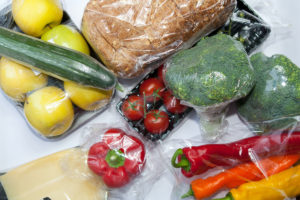Canadians share their views on better plastics labelling and tracking plastic products nationally
After 2022 public consultations, the Government of Canada is now in the process of developing new labelling rules for plastics.
These rules will prohibit, in most circumstances, the use of the recycling symbol (known as the chasing-arrows symbol or three-arrow symbol) on plastic packaging and products to more closely match the material’s actual recyclability. In addition, the federal government has committed to control terms such as “biodegradable” and “compostable” for similar reasons, and has committed to creating a plastics registry to annually report on the life cycles of plastics in Canada.
News Preview:
Canadians want concrete action to better manage plastics—to protect the environment, conserve biodiversity, and strengthen the economy. The Government of Canada is continuing to bring forward new measures to improve how plastic is made, used, and managed to move toward the goal of zero plastic waste.
Today, the Government of Canada is releasing a report on what it heard from two public consultations focused on:
Developing rules for recyclability and compostability labelling
Establishing a federal plastics registry for the plastic products industry
From July 25, 2022, to October 7, 2022, the Government asked Canadians, stakeholders, industry, and provincial, territorial and local governments to share their views on new labelling rules that would better inform consumers and strengthen recycling and composting of plastics in Canada. The Government also sought views on developing a registry for producers to report on the plastics they put into the economy.
New labelling rules are being developed that would prohibit the use of the circular three-arrow symbol (often referred to as the chasing-arrows symbol) and other recyclability claims on plastic packaging and single-use plastics unless specific conditions are met. These conditions may include that at least 80 percent of Canadians have access to recycling systems that accept, sort, and re-process these plastics.
In addition, new rules are being considered to control the use of terms such as “compostable”, “degradable”, or “biodegradable” in the labelling of plastic packaging and single-use plastic items. These new rules would help Canadians make informed decisions about the plastics they buy, and how to properly dispose of the products at their end of life. The labelling rules would be part of new regulations that would also require minimum levels of recycled plastic in certain products.
In addition, the Government of Canada is committed to establishing a federal plastics registry that would require annual reporting of plastics in the Canadian economy and how these products are managed at the end of their lives. The registry would also collect and publish data for Canadians on the entire life cycle of plastics in Canada.
The Government intends to publish a proposed framework for the recycled content and labelling regulations later this year, which will be available for public consultation. Comments received on this framework will inform the proposed regulations that are targeted for publication before the end of the year.
Environment and Climate Change Canada, February 17, 2023.



